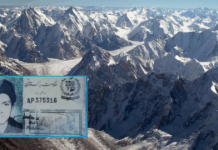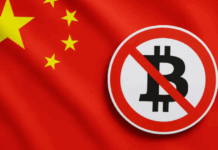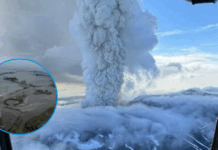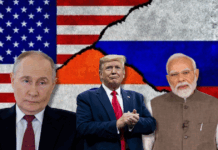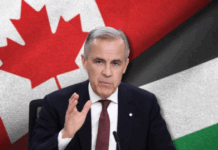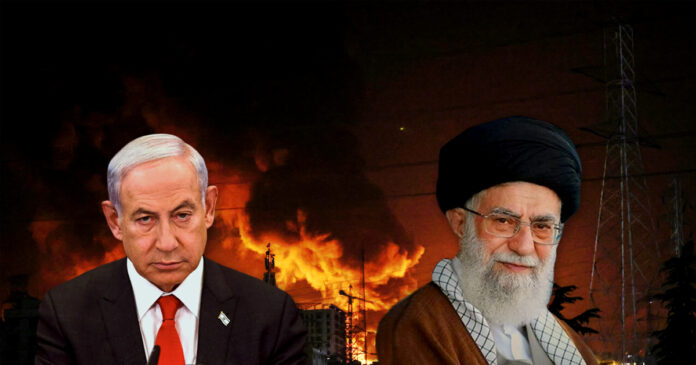The Iran-Israel conflict teeters on the edge of open warfare as it enters its 7th day on Thursday. Now the shockwaves are being felt far beyond the immediate battlegrounds.
One unlikely, yet increasingly discussed, potential flashpoint is Pakistan. The country is already grappling with its volatile mix of domestic insecurity, sectarian divisions and geopolitical tightropes.
Could the Iran-Israel conflict truly spill over into Pakistan? Unfortunately, the short answer is yes. And the consequences could be disastrous.
Pakistan’s Security in Danger
Pakistan may not be in the direct line of fire between Tel Aviv and Tehran, but its geography and internal makeup make it more vulnerable than it seems at first glance.
Iran shares a 909-kilometre (560-mile) border with Pakistan’s restive Balochistan province. On Monday, Pakistani officials announced that several borders with Iran would be closed indefinitely from June 15. At the heart of this decision is an attempt to protect Pakistan’s security, especially in Balochistan as that province is highly influenced by its ties with Iran, say experts.
The Israel-Iran conflict marks a dangerous turning point not only for Middle East geopolitics but also for Pakistan. According to US-based Pakistan analyst Raza Rumi, “The implications are [anything but] distant.”
“As a country with close ties to key Gulf allies and a complex relationship with Iran, Pakistan will be under pressure to maintain neutrality while safeguarding its strategic interests,” Rumi added.
Pakistan has long tried to balance its relationship with the Islamic Republic of Iran, all while maintaining strategic ties with Gulf Arab states like Saudi Arabia (many of whom are more aligned with Israel than ever before). This balancing act is becoming harder to manage as the conflict escalates.
Caught between allies with diverging interests, Pakistan could face impossible choices.
Does it back Iran for the sake of border peace and Shia constituencies? Does it align more closely with the Gulf and risk inflaming sectarian tensions at home? Or does it try to play neutral and risk alienating everyone?
Sectarian Fault Lines and the Balochistan Issue
Pakistan’s most immediate risk doesn’t come from missiles; it comes from sectarian strife. Iran positions itself as the spiritual and political guardian of Shia Islam, and many Pakistani Shias hold it in high religious regard.
This dynamic exists within a country where Sunni Islam is the majority, and a vocal, sometimes militant, hardline Sunni minority adds to the tension.
The relationship between predominantly Sunni Pakistan and Shiite-majority Iran has always been complex. Should Israel intensify its strikes on Iran, and Tehran retaliates through regional Shia groups, Pakistan could once again become a stage for this shadow war.
We’ve seen this before in sectarian killings, mosque bombings and targeted attacks that seem random but often trace back to a global chessboard of influence.
Another issue is the Balochistan problem in Pakistan that can be fueled by the ongoing Iran-Israel conflict. Recent history shows us that whenever tensions escalate between Iran and external powers, border provinces like Balochistan pay the price.
This is mostly due to the cross-border region being affected by attacks from Baloch separatists who are fighting a war of independence against the Pakistani state and are being backed by Iran.
“There is a major concern within Pakistan that in case the war escalates, members of armed groups such as BLA and BLF, many of whom live in Iran’s border areas, might try and seek protection inside Pakistan by crossing the very porous boundaries shared by the two countries,” Abdul Basit, a researcher, told Al Jazeera.

Brief Recent Standoff Between Iran and Pakistan
Iran has also accused anti-regime militants of finding shelter in Pakistan’s territory. In January 2024, Iran launched strikes on what it claimed were separatist groups inside Pakistan called Jaish al-Adl. This was a shocking breach of sovereignty that led to a short but serious diplomatic standoff.
Even though later on, both parties reached the middle ground, many Pakistani civilians have contemplated the decision to back Iran now. Some even claimed that Iran was diplomatically neutral when Pakistan was at war with India and never picked sides when it was needed.
On Monday, Minister of Foreign Affairs Ishaq Dar addressed Parliament, emphasising how Pakistan had been speaking with Iran and suggesting that Islamabad was willing to play a diplomatic role to help broker an end to the military hostilities between Iran and Israel.
If the Iran-Israel conflict intensifies and Tehran feels cornered, we might see more such border skirmishes.
The Possibility of History Repeating Itself: Afghanistan War
What many people fear is the chance of history repeating itself. Pakistan got involved in the Soviet-Afghan war of 1979 as an attempt to show its support for the USA. On the command of the USA, Pakistan openly backed the Afghan militants that were fighting to topple the Taliban government and also opened its border to allow them refuge.
And then? Pakistan paid the price and still does. Afghan refugees were hurled in Pakistan, and with them they brought in all the unnecessary factors too (Kalashnikov culture, opium/drugs and high rates of terrorism).
The most recent mass influx occurred after the Taliban took control of Kabul in August 2021, leading to nearly 4 million Afghans residing in the country at its peak. However, in 2023, Pakistan launched a campaign to repatriate these refugees.
According to government estimates, close to a million have been expelled so far. The Pakistani government cites rising incidents of armed violence within its borders, which it attributes to groups it claims are finding refuge in Afghanistan. Conversely, the Taliban denies that they provide sanctuary to any anti-Pakistan armed groups on Afghan territory.
Neutrality Isn’t Always Safe
Pakistan’s preferred policy so far has been one of cautious neutrality, with official statements calling for de-escalation and diplomatic solutions. But in today’s world, neutrality can be interpreted as passive complicity, especially by helpless victims of war.
Pakistan’s leadership needs to be proactive now. The Iran-Israel conflict should be a wake-up call. Islamabad must urgently engage in shuttle diplomacy; not just issuing statements but physically inserting itself into peace efforts.
It must also invest in domestic intelligence operations to monitor and defuse any sectarian or foreign-backed movements that might use the chaos as cover.
A fractured Pakistan would be the worst-case scenario. And it wouldn’t take a missile to get us there. Just continued silence, inaction and naiveté.
If there was ever a time for Pakistan to act like a regional statesman, not a silent bystander, it is now. After all, in today’s interconnected world, foreign wars are never truly foreign.
Stay tuned to Brandsynario for the latest news and updates







